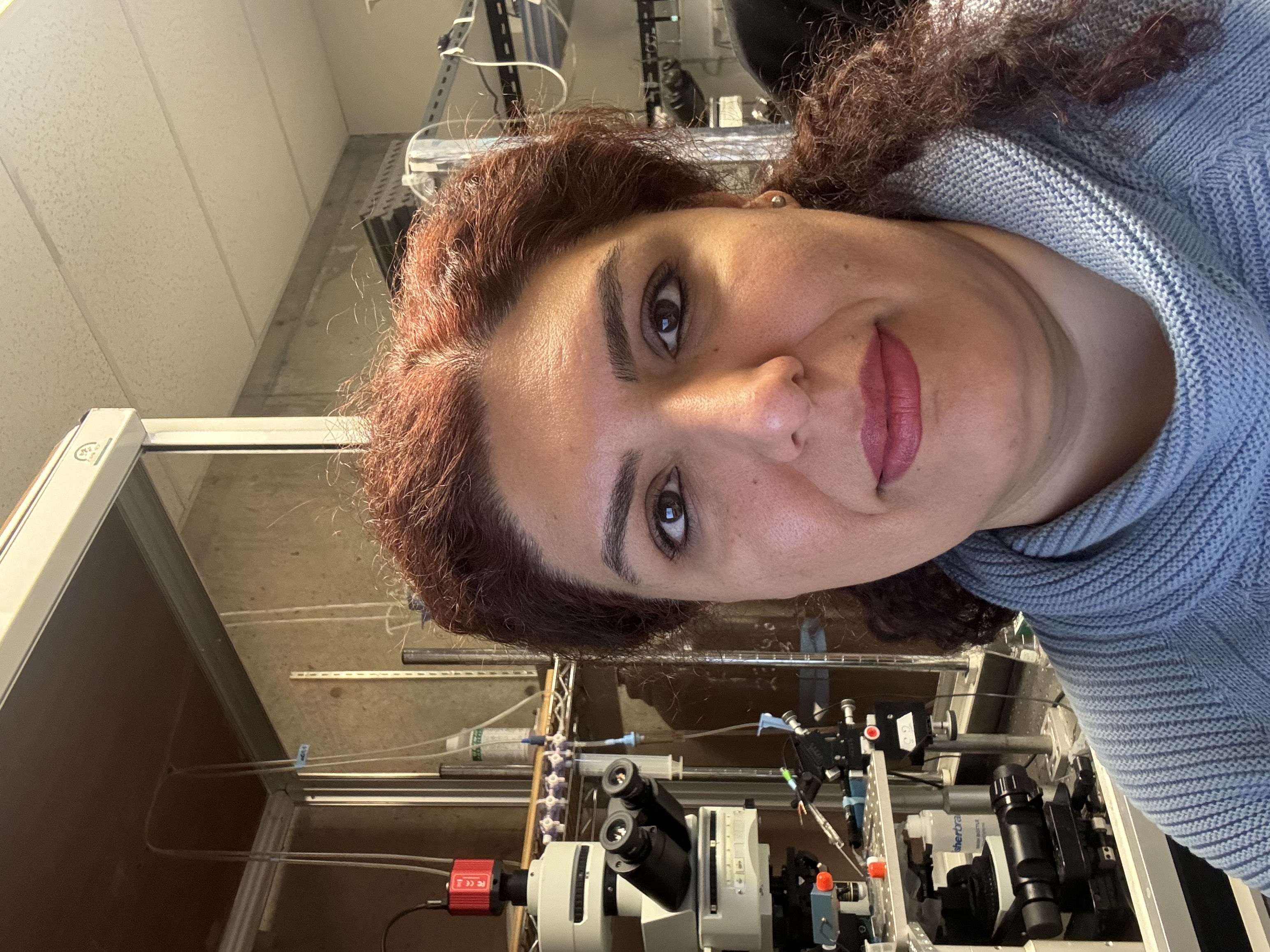Post-doctoral fellows
Prospective post-doctoral fellows: Are you interested in doing post-doctoral research with one of our faculty? If you have recently completed or are near completion of a PhD, you may want to contact UVic faculty members to discuss your interests and see if they have any PDF positions available through their grant funding.
Information for prospective post-doctoral fellows at UVic.
| DMSC Post-docs | |
 |
Grace Akingbade (Christie Lab) Dr. Grace Akingbade holds degrees in Anatomy (BSc, MSc, PhD) from University of Ilorin, Nigeria. She is driven by a passion to investigate the intricate relationships between prenatal exposure to environmental factors and the subsequent development of neurodevelopmental and neurodegenerative disorders. By elucidating the effects of prenatal environmental exposures on brain development and function, she aims to contribute meaningful insights to the field of neuropathology, ultimately enhancing our understanding of the etiological mechanisms underlying neurodevelopmental and neurodegenerative disorders. Specifically, her research focus involves exploring the molecular and cellular mechanisms by which prenatal exposure to environmental factors influences brain development and increases the risk of neurodegenerative disorders. Furthermore, she is committed to identifying potential therapeutic strategies to mitigate the detrimental effects of prenatal environmental exposures on brain health, with the ultimate goal of developing effective interventions and treatments for individuals affected by these exposures. |
 |
Josh Allen (Christie Lab) I completed my undergraduate and master's studies in Ireland, where I developed a research focus on elucidating the mechanisms of action underlying rapid-acting therapeutics for neurological and psychiatric disorders. After earning my PhD in Canada, I worked in Australia for several years, employing various animal models and behavioral, pharmacological, immunohistochemical, electrophysiological, and neuroimaging techniques, to explore the therapeutic potential of psilocybin for treating acquired brain injury. At UVIC, under the guidance of Drs. Sandy Shultz and Brian Christie, I am continuing my preclinical research with psilocybin as well as initiating clinical trials to evaluate its efficacy in treating patients with acquired brain injury and other psychiatric disorders. By integrating preclinical and clinical research, we hope to develop innovative treatment approaches that significantly improve patient outcomes. |
|
|
Shima EbrahimiKhonacha (Christie Lab) I hold degrees in Biology (BSc), Hommen Physiology (MSc), and Neuroscience (PhD) from my country, Iran. My research focuses on understanding the neural mechanisms involved in various neurological disorders. This includes investigating the functioning of neural circuits in both healthy and diseased states and examining the roles of neurodegeneration and neural plasticity in these conditions. Additionally, I am interested in exploring how sex influences neurodegeneration. Electrophysiology is a key tool in my research, as it allows for the recording and analysis on neuronal electrical activity, providing valuable insights into inter-neuronal communication. |
|
|
Eric Eyolfson (Christie Lab) The mild traumatic brain injury (mTBI) field is steeped in a cloud of confusion. What factors are associated with individuals experiencing more symptomologies than others? Why are some individuals seemingly more susceptible to injury than others? The core of my research interests involves understanding the heterogeneity associated with mTBI. One potential source of this heterogeneity involves the brains resident immune cell, microglia. While being critical responders following injury, microglia are also actively involved in brain maturation especially during critical developmental periods (i.e. adolescence). I am interested in determining the influence of adolescent mTBI on the homeostatic functioning of microglia and investigating the potential long-term outcomes. Additionally, the majority of previous mTBI research had focused on adult males, but it is becoming ever clearer that understanding the pathophysiology of underrepresented groups (females and adolescents) may help us fully appreciate the sequelae of mTBI. |
|
|
Ifeoluwa (Hiphy) Awogbindin (Tremblay Lab) Dr. Ifeoluwa Awogbindin has honors and graduate degrees from the Department of Biochemistry, University of Ibadan, Nigeria. He is passionate about the intersection of neurotropic infections and neurodegenerative diseases, focusing on microglia roles. During his PhD, he studied the pharmacological effects of kolaviron, an anti-inflammatory agent from Garcinia kola seeds, in mice infected with influenza A virus. The study was top-rated and earned the best PhD thesis prize in 2018. Further, he committed to studies in animal models of Parkinson’s disease, validating the folkloric claim that Garcinia kola seeds enhance healthy aging. He held several training and travel awards, including an NIH-funded UI-MEPIN-J mentored grant, IBRO-ARC Bursary and ISN International Travel Support. In the Tremblay Lab, Dr. Awogbindin is investigating whether alterations of microglial structure and function during infections with SARS-CoV-2 and HSV-1 predispose to Parkinson’s and Alzheimer’s diseases, respectively. |
 |
Benneth Ben-Azu (Tremblay Lab) Dr. Ben-Azu obtained his first degree training in Science Laboratory Technology with specialization in Physiology and Pharmacology in 2010 and graduated as the best graduating student from the set. During his postgraduate studies (MSc: 2014; PhD: 2018), Dr Ben-Azu specialized in neuropharmacology specifically looking at single or two-hit mouse models of schizophrenia, the patho-mechanisms involved and the constructive validity with antipsychotic drugs. Dr Ben-Azu has received different travel grants and fellowships, including the IBRO-ARC and Michael Smith Health Research Postdoctoral awards. As a Post-doc in Tremblay’s Lab, Dr Ben-Azu’s research goal is focused on how different epigenetic hit-factors such as dietary lifestyle, stress and infection affect microglia reserves in health, and in neurodevelopmental and neurodegenerative disease states. |
 |
Haley Vecchiarelli (Tremblay Lab) Dr. Haley Vecchiarelli obtained her PhD from the University of Calgary in 2020. She is currently a postdoctoral fellow in Dr. Marie-Ève Tremblay's lab. Her research interest is broadly how the immune system affects the brain to influence behaviour. Her current work looks at how chronic stress influences microglia to produce cognitive deficits. She is investigating this using in-vivo 2-photon imaging, electron microscopy and behavioural analysis.
|



